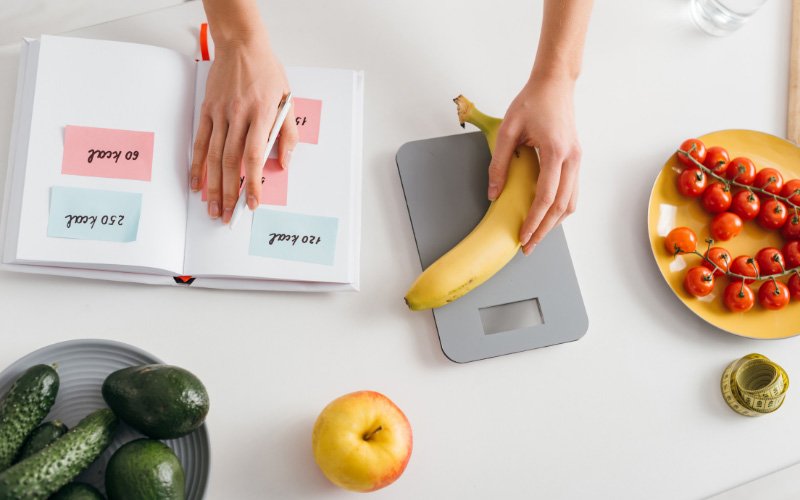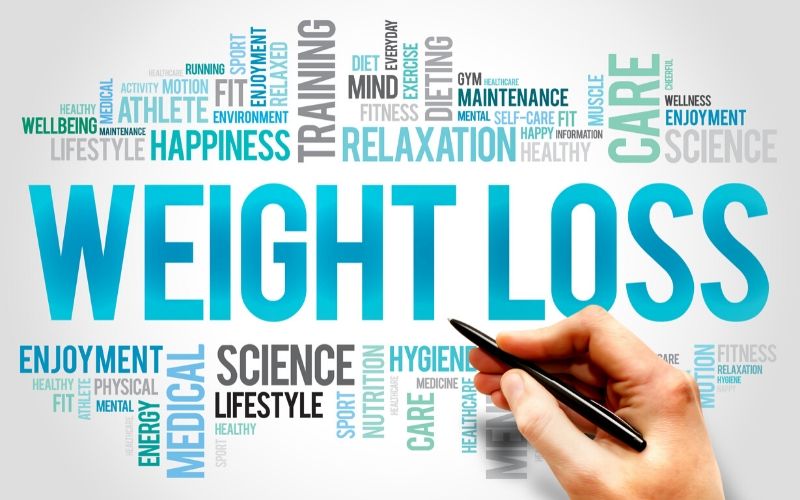Lose, maintain or gain weight: How many calories do I need?

It’s a common question and one we get asked a lot. So we’ve put together this helpful guide to assist you in choosing the right daily calorie level to maintain weight, lose weight or even gain weight! And to make sure we got it right, we ran it all past Personal Trainer and Fitness Expert, Coach Joseph Hall, whose job it is to help people achieve the body weight and body shape they want.
Are you ready for some maths?
Here goes. There’s a two-step calculation required to work out the number of calories you need. Stay with us though, it’s not as hard as it looks and gaining an understanding of this will really help you to plan your approach to eating. Don’t worry if you’re no good at maths, we’ve included Coach Joseph’s cheat sheets at the end. ;)
Note that some online calculators will take into consideration your age and your height as well as your weight, but we’re trying to keep things simple here. Feel free to use our method below and then go online and compare your result with one of the many online BMR calculators.
Step 1. Estimate your basal metabolic rate (BMR)
Your BMR is the amount of calories your body needs to function at rest or asleep. It’s the minimum number of calories you need to maintain vital functions such as breathing, heart rate and brain function.
Women. Your body weight (kg) x 20 = Your BMR
Example. 65kg x 20 = 1,300
Men. Your body weight (kg) x 23 = Your BMR
Example. 80kg x 23 = 1,840
Step 2. Factor in your activity levels
Your BMR alone does not account for the energy required to get out of bed, walk, talk and exercise. Therefore, you need to apply your activity level factor to your BMR. Choose the appropriate activity level from the box below and then do the calculation. Note that your activity levels will vary from day to day so choose the average.
|
Activity Level |
Description |
Factor |
|
Sedentary |
Little to no activity |
1.1 |
|
Light Activity |
Some walking or standing |
1.3 |
|
Moderate Activity |
On feet much of the day |
1.5 |
|
High Activity |
Exercising or physical labour |
1.7+ |
BMR x Activity Level = Your total daily calories needed (to maintain weight)
Example. 1,300 x 1.3 = 1,690 calories
Do you want to lose weight, maintain weight or gain weight?
It all comes down to balance, which our bodies do a pretty good job with when we keep things relatively the same. But to make a change to your body weight, you need to modify the things that you can control and that’s either to food you eat (calorie intake) or your activity level (calories burned).
To lose weight. Eat less calories than you need and/or increase your activity levels.
To maintain weight. Eat the number of calories you need.
To gain weight. Eat more calories than you need.
Generally, it’s not recommended to reduce your activity levels (unless you’re doing punishing amounts of exercise). This is because there are a multitude of physical and mental wellbeing benefits that come from being active. Learn more about the health benefits of physical activity.

Case study: Calculating calories to lose weight
Jill is a 65kg female who is lightly active. Jill’s BMR is 1300 (65 x 20). She requires 1,690 calories per day to maintain weight (1300 x 1.3).
Jill wants to lose 5kgs. To do this she needs to get herself into calorie deficit. This is when her calorie intake is less than the calories she burns. When in calorie deficit, the body will rely on its own fat stores to supply the extra energy it needs, thereby resulting in loss of body weight.
Option 1. Jill chooses the 1200 Calorie Plan. On this plan, Jill eats a healthy breakfast, lunch, dinner and a snack each day. She feels completely satisfied and is not hungry, but as the meals are lower in calories than her normal diet, she begins to lose weight. Jill has created a 490 calorie deficit each day (1,690 -1200). This calorie deficit typically amounts to around 0.5kgs of body weight loss per week. After 10 weeks on this plan, Jill will reach her goal weight of 60kg.
If Jill increases her activity level from Light to Moderate, then she will accelerate her weight loss to around 0.75kgs per week, thereby reaching her goal weight in 6-7 weeks.
Option 2. Jill chooses the 800 Calorie Plan. On this plan, Jill eats only 800 calories per day across three light meals. Jill also uses intermittent fasting, so she delays eating breakfast (or eats dinner early) each day to create a longer overnight fast. The calorie restriction on the 800 calorie plan enables Jill to create a calorie deficit of 890 calories per day, which will see her achieving more rapid weight loss. Jill is set to lose just under 1kg per week on this plan, without changing her activity levels. She should reach her goal weight in around 6 weeks.
Given the very low calories in the 800 Calorie Plan, it's not recommended for Jill to engage in any extreme workouts, though walking or yoga are two ways she could gently increase her activity level. After a few weeks on the 800 Calorie Plan, Jill could switch over to a less restrictive plan for weight maintenance.
Coach Joseph’s Cheat Sheets
Female Cheat Sheet – calories required to maintain weight
|
Weight Activity |
55kg |
60kg |
65kg |
70kg |
75kg |
80kg |
85kg |
90kg |
95kg |
|
1.1 |
1,200 |
1,300 |
1,450 |
1,550 |
1,650 |
1,750 |
1,900 |
2,000 |
2,100 |
|
1.3 |
1,450 |
1,550 |
1,690 |
1,800 |
1,950 |
2,100 |
2,200 |
2,350 |
2,450 |
|
1.5 |
1,650 |
1,800 |
1,950 |
2,100 |
2,250 |
2,400 |
2,550 |
2,700 |
2,850 |
|
1.7 |
1,900 |
2,000 |
2,200 |
2,400 |
2,550 |
2,700 |
2,900 |
3,050 |
3,250 |
* Round your weight to the nearest 5kg. For example, 62kg (use 60kg column), 78kg (use 80kg column)
Male Cheat Sheet – calories required to maintain weight
|
Weight Activity |
70kg |
75kg |
80kg |
85kg |
90kg |
95kg |
100kg |
105kg |
110kg |
|
1.1 |
1,770 |
1,900 |
2,050 |
2,300 |
2,300 |
2,400 |
2,550 |
2,650 |
2,800 |
|
1.3 |
2,100 |
2,750 |
2,400 |
2,600 |
2,750 |
2,850 |
3,000 |
3,150 |
3,300 |
|
1.5 |
2,400 |
2,600 |
2,750 |
3,000 |
3,150 |
3,300 |
3,450 |
3,600 |
3,800 |
|
1.7 |
2,750 |
3,000 |
3,100 |
3,400 |
3,550 |
3,750 |
3,900 |
4,100 |
4,300 |
* Round your weight to the nearest 5kg. For example, 82kg (use 80kg column), 88kg (use 90kg column)
Notes
- Remember to recalculate your BMR if your body weight changes significantly. For example, if you lose weight, your BMR will drop and therefore your required daily calories will also reduce. This is why you will tend to notice greater weight loss when you first start dieting. Check out this article if you’re worried about the dreaded weight loss plateau.
- This is a guide only. For individual advice, please consult a health care professional.











